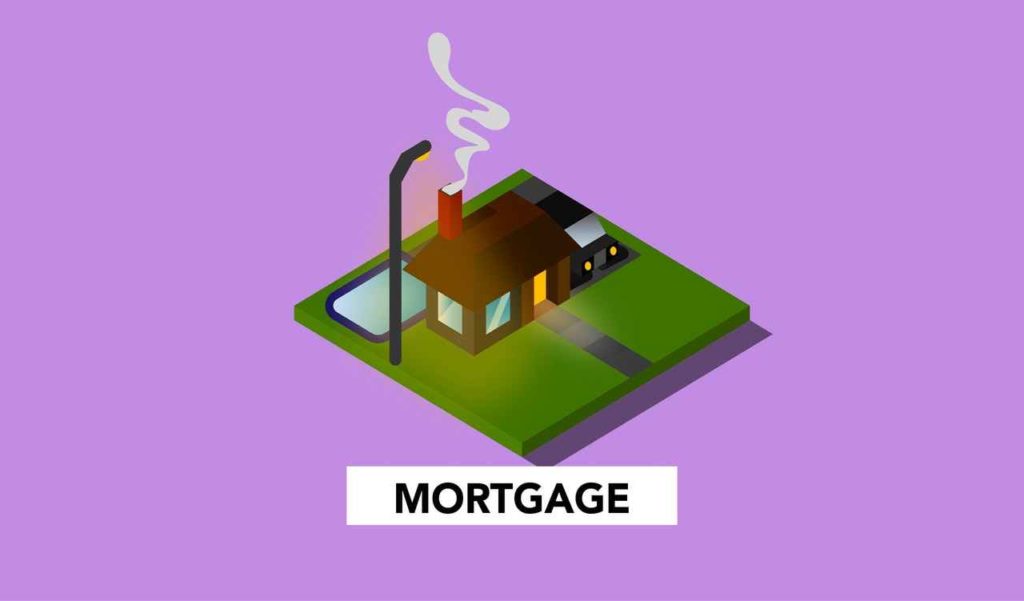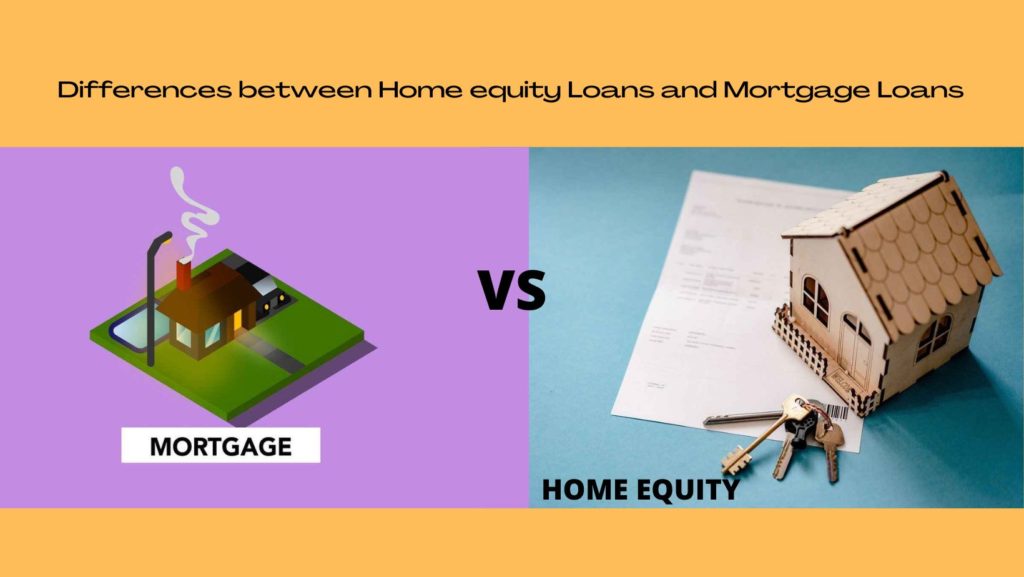Home Equity Loan and Mortgage Loan are two kinds of loans you may get on your house. A mortgage is the first loan you take out to buy your property. You may take out a second mortgage to pay a portion of the cost of your property or refinance to cash out some of your home’s equity.
Before deciding which loan to employ, it is critical to grasp the distinctions between a mortgage loan and a home equity loan. Know About Home Equity Loan vs Mortgage Loan in the UK is covered here.
What is a home equity loan in the UK, and how does it work?

What Is Home Equity Loan UK?
A home equity loan UK is frequently referred to as a second mortgage. It is a secured loan since the borrower utilizes their home as security. It enables you to take out loans in one lump sum and return it in predetermined monthly installments that include the principal amount.
But what exactly is equity? Equity is obtained after deducting the current market value of your home from the money owed on your mortgage. Greater you pay down your mortgage, the more your equity in your home becomes.
How Does Home Equity Loan UK Works?
A home equity loan UK gives you access to a lump sum of money. This kind of borrowing works best if you know how much money you need and for what purpose. When you take out a home equity loan, you must return it at a fixed rate for several years.
You need to be sure that you can expect to spend payments on this second mortgage and the payments you already make on your first mortgage while still keeping a smooth balance among all your other monthly obligations.
What is a mortgage loan in the UK, and how does it work?

What Is Mortgage Loan UK?
A mortgage loan UK is a kind of financing that may be used to help you purchase real estate. The typical mortgage lasts 25 years – but may vary from six months to 40 years – and requires monthly payments. It’s protected against your house, which means you might lose it if you don’t make the payments.
How Does Mortgage Loan UK Works?
When you buy the house, you normally put down a flat payment, known as a “deposit,” towards the buying price. A mortgage loan UK may be used to cover the remaining cost of your property. You will own your house, but you must make monthly mortgage payments to retain it.
Your monthly mortgage payments will also include interest, which the lender pays you for borrowing money. The money you pay is determined by the mortgage interest rate, which is expressed as a percentage of the total number owed.
If you want to reside in the house, most mortgages accessible to you will be repayment mortgages. This implies that, in addition to paying interest, you will repay a portion of the loan each month.
Nevertheless, most of you are interest-only if you’re looking for a buy-to-let mortgage. This means you’ll be paying interest each month and still repay the principal amount after your mortgage term.
Differences between Home equity Loans and Mortgage Loans

- The potential loan amount for a home equity loan is normally determined by the difference between the owner’s outstanding mortgage debt and the property’s current market value. In this particular scenario, the loan amount accounts for up to sixty percent of the net worth.
- In the case of a mortgage loan, the size of the loan is determined, in large part, by the current property value on the market. The maximum amount that may be borrowed is equal to 80% of the property’s current market value, or Rs. 10 crores.
- Home equity loans have a loan term of fifteen years, and the loan amount may be used for any purpose.
- Loans for mortgages often have a maturity period of fifteen years and have a loan term of the same length.
- The interest rate for a home equity loan is often lower than that of a personal loan.
- The interest rate on a mortgage loan is often lower than that on a home equity loan.
- A home equity loan will often have a fixed interest rate since this is the most common sort of interest.
- When it comes to mortgage loans, the interest charged is almost always a variable rate.
- The time it takes to complete the home loan processing might range anywhere from two to four weeks. The success of this endeavour is contingent on the successful completion of all verification processes and documentation requirements.
- Mortgage loans typically just need around ten days’ worth of processing time before they’re ready to be submitted. The success of this endeavour is contingent on the successful completion of all verification processes and documentation requirements.
Fees Applicable to Prepayments
- Though it comes to home equity loans, the fees associated with prepayment might vary from one lender to the next, even when the interest rates remain the same.
- Regarding mortgage loans, prepayment penalties are not applicable if the interest rate is variable.
What is a second mortgage in the UK?
A second mortgage in the UK is a loan that may be secured against an existing mortgage on a property. In other words, you might have both your first charge mortgage and a second charge mortgage from a separate lender on the same home.
Second-charge mortgages are one alternative for homeowners who want to borrow more money than personal loans. Second charge mortgages are also known by various names, including homeowner loans, secured loans, and second mortgages.
Is a second mortgage loan and a home equity loan the same thing?
It’s important to note that a home equity loan and a second mortgage amount to the same thing when considered. It does not matter whether you refer to it as a second mortgage or a home equity loan; the concept is the same in either case.
Tapping into your home’s equity might put cash in your hands quickly when you find yourself in a financial bind. However, you should know the potential costs involved and how having two mortgages can impact your monthly budget.
Advantages and disadvantages of a Home equity loan?
Advantages of Home equity loan
- You will be charged a set interest rate. The rate of interest you sign up for is the interest rate you will pay for the duration of the loan. Even if the Federal Reserve increases interest rates, they will not rise.
- Your borrowing charges will be reduced. Compared to other forms of loans, using real estate as collateral often results in cheaper interest rates.
- Your payments will remain unchanged. Because you’re borrowing in one lump amount with a fixed interest rate, your payments are predictable and won’t fluctuate throughout the life of the loan.
- You can spend the money on almost anything. There are no restrictions on how you may utilise the funds from a home equity loan.
- Your interest charges may be deductible for tax purposes. If you decide to utilise the profits of your home equity loan to repair your house, you may be eligible to deduct the interest from your taxable income.
Disadvantages of Home equity loan
- Your house is being used as collateral. If you fall behind on your payments, you may lose control of your house via foreclosure.
- Closing expenses are your responsibility. Closing expenses will certainly be required, as with most real estate loans. These fees might vary between 2% and 5% of the loan amount.
- You will have to make two mortgage installments. If you still have the main mortgage, you will have two mortgage payments, cutting your excess income and tightening your monthly budget.
- You must already have substantial equity in your property. Many lenders demand you to keep your loan-to-value (LTV) ratio at or below 85%, which means you must still have at least 15% equity in your house after taking out a home equity loan.
- A decent credit score and a minimal amount of previous debt are usually required. Many lenders have stringent conditions for home equity loans, such as higher credit score minimums and less flexibility for greater debt-to-income (DTI) ratios.
Home equity Loan vs Mortgage Loan, which one is better?
Home equity loans & mortgage loans each offer their own set of advantages. All you have to do is choose a plan based on your needs and financial situation.
Home loans and mortgage loans, for example, are both secured loans that provide extra top-up loan facilities, balance transfer services, and so on, depending on the total loan amount that a borrower is qualified for.
For several reasons, a loan may be required, but with so many different home loan options on the market today, experts warn prospective borrowers are often misled. One such perplexing loan is the house loan and mortgage loan.
A home loan is used to fund a home’s purchase or building, while a mortgage loan has no constraints on how the borrower intends to utilise the loan.
A home loan is required when acquiring or constructing a new house, while a borrower obtains a mortgage loan for a property they already own.
When to use a mortgage over a home equity loan?
In some circumstances, a mortgage may be preferable over a home equity loan. If you need a significant lot of money — If you require a substantial sum, a mortgage is likely to be your best alternative. This is because home equity loans have lower borrowing limitations than mortgages.
If you seek the lowest possible interest rate, mortgage rates are often lower than home equity loan rates. So, a mortgage is your best choice if you want the lowest possible interest rate. However, the cost of borrowing should be evaluated, including any early settlement costs on your existing mortgage, since this may substantially influence the overall cost.
Finally, if you want to keep your borrowing under one monthly payment and one facility, a mortgage enables you to do so. While there is no practical benefit to doing so, many individuals find it simpler to manage their money when they have fewer monthly payments.
Of course, these are just broad recommendations. Speak with a financial counsellor or secured loan broker to see if a mortgage or home equity loan is good for you. They can advise you on which solution is ideal for your specific situation.
Note – When you need to borrow more money, you may use your home as collateral to get the money. However, keep in mind what you’re putting at risk: If you fail to make mortgage or home equity loan payments, the lender can repossess your house.
Conclusion:
In this post, we discussed the complete details to Know About Home Equity Loans vs Mortgage Loans in the UK. If you found the information in this article to be useful, then please share it with your loved ones.







